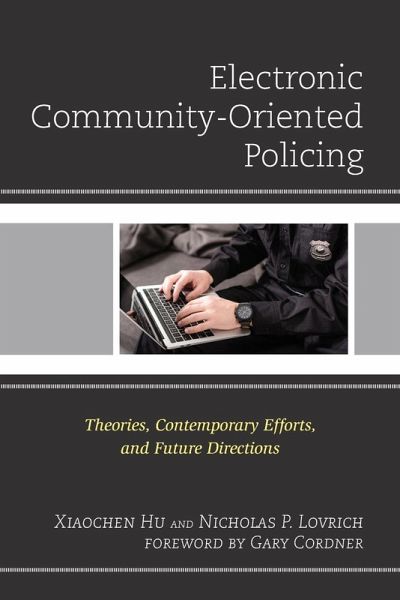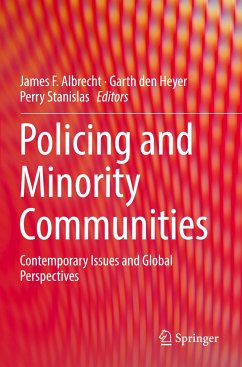
Electronic Community-Oriented Policing
Theories, Contemporary Efforts, and Future Directions
Versandkostenfrei!
Versandfertig in 1-2 Wochen
44,99 €
inkl. MwSt.
Weitere Ausgaben:

PAYBACK Punkte
22 °P sammeln!
Hu and Lovrich introduce the "electronic community-oriented policing" (E-COP), concept to explore how social media can impact police strategies on improving police-public relationships. This timely refinement to traditional community-oriented policing strategies is of the utmost importance as we move further into the twentieth century.














